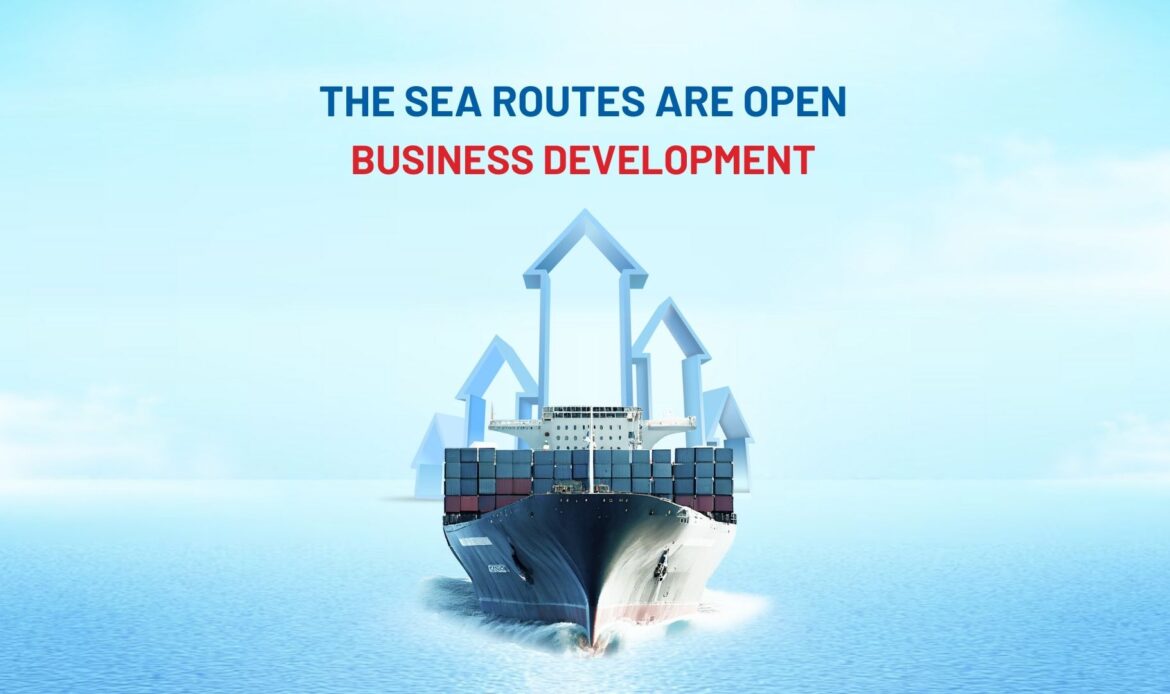Advantages and disadvantages of international sea freight

In the context of globalization, international sea freight plays a crucial role in connecting nations and facilitating the movement of goods across the globe. However, like any other mode of transport, sea freight has both advantages and disadvantages that businesses must carefully consider before making a decision.
Advantages of international sea freight
- Low transportation costs
One of the most significant advantages of sea freight is its relatively low transportation cost, especially when moving large and bulky goods. Shipping allows massive cargo vessels to transport thousands of tons of goods in a single trip, significantly reducing fuel and labor costs. - Suitable for bulky and heavy goods
Bulky and heavy items such as machinery, crude oil, and industrial materials are often better suited for sea freight compared to air or road transport. The ability to carry large volumes helps maximize efficiency and lower transportation costs. - Environmentally friendly
Although ships consume a lot of fuel, sea freight emits less CO2 per ton of cargo transported compared to road or air transport. This makes sea freight a more environmentally friendly option in the long run. - Extensive global network and diverse connections
Ports around the world are interconnected through international sea routes, forming a vast transport network. This enables businesses to access new markets and ship goods to almost any destination across the globe.
Disadvantages of international sea freight
- Long transportation time
One of the major drawbacks of sea freight is the extended transportation time. Ships travel much slower than airplanes or road vehicles, making sea freight unsuitable for goods that require fast delivery. - Dependence on weather conditions
Sea freight is highly affected by weather factors such as storms, high waves, or other natural events, which can cause delays or even loss of goods if not managed properly. Additionally, climate change and melting ice are having a negative impact on shipping routes. - High insurance costs
Due to risks such as collisions, shipwrecks, or piracy, insurance costs for sea freight tend to be higher than other transport methods. This is particularly true for shipments passing through high-risk areas or complex geographical regions. - Infrastructure requirements at ports
To ensure efficient cargo handling, seaports need modern infrastructure, including cranes, warehouses, and robust Logistics systems. If ports are not up to standard or are overloaded, cargo loading, unloading, and transfer can be delayed, affecting the entire global supply chain.

International sea freight services at VELA
International sea freight continues to play a vital role in global trade, but efficient management is necessary to fully leverage its advantages. Recognizing this trend, VELA not only provides standard international sea freight services but also offers comprehensive shipping solutions with cutting-edge digital technology.
- Smart transport management technology
VELA utilizes a fully digitized transport management platform, allowing businesses to track their shipments in real-time, from departure to arrival. With the integration of AI and Big Data, this digital platform can accurately predict delivery times, optimize shipping routes, and mitigate risks caused by weather or unforeseen incidents. - Cost optimization with customizable services
We understand that each business has its own unique transportation needs. At VELA, companies can choose flexible service packages that fit their budget and cargo size, from small shipments to large intercontinental consignments, ensuring strict cost control while maintaining timely deliveries. - Ensuring cargo safety
At VELA, cargo safety is always a top priority. We work with leading shipping partners to provide comprehensive cargo insurance at competitive rates. Moreover, VELA’s team of experts is ready to assist businesses with consulting, selecting solutions, and overseeing operations, ensuring that goods are shipped through sea routes safely, quickly, and efficiently. - Custom solutions based on cargo characteristics
At VELA, we not only provide standard shipping services but also offer flexible, customized solutions tailored to the specific characteristics of each type of cargo. From fragile items and frozen goods to heavy industrial cargo, we have the right transportation options to ensure goods arrive intact and meet quality standards.
International sea freight is an excellent choice for businesses looking to transport large volumes of goods at low costs while minimizing environmental impact. However, companies need to carefully consider factors such as transportation time, weather risks, and insurance costs to ensure a smooth and efficient shipping process. At VELA, we not only transport goods but also optimize the entire supply chain, helping businesses thrive in the international market.
